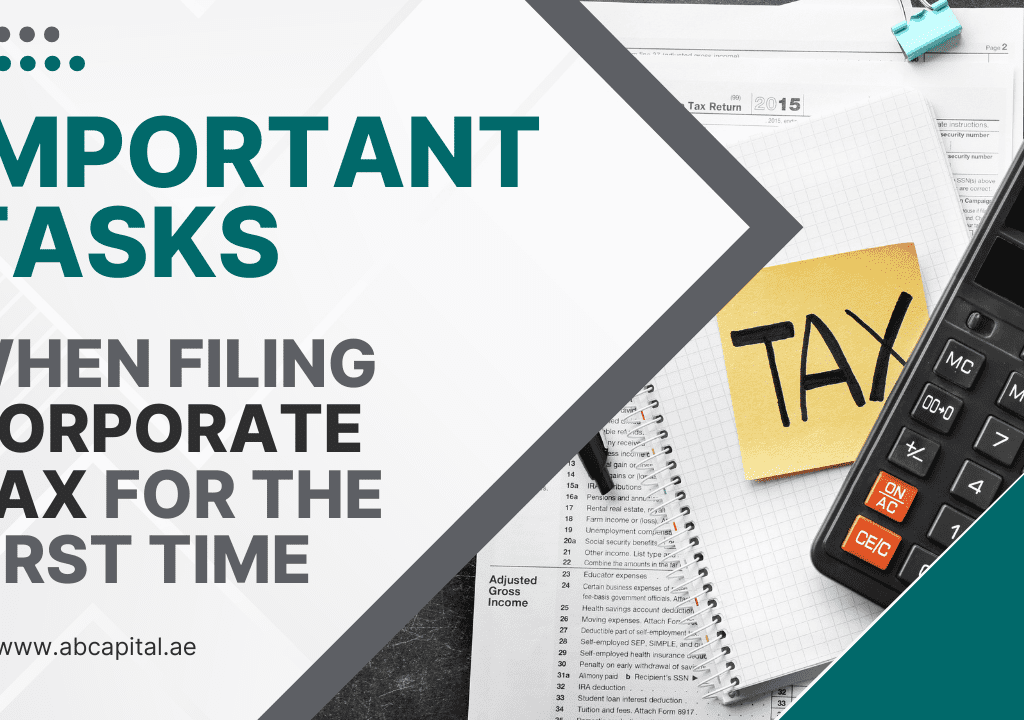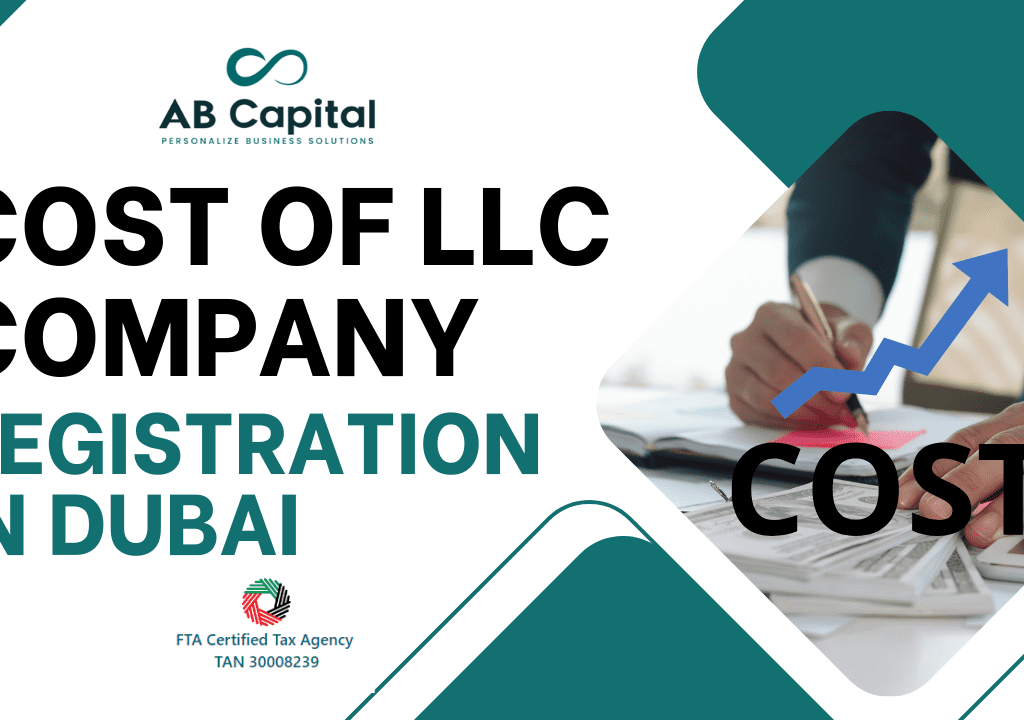While it is true that Dubai has enjoyed a steady rise as a global business hub, attracting businesses from many corners of the world, it is the strategic location and business friendly policies of the service. The Limited Liability Company (LLC) is one of the popular businesses structures in Dubai and is chosen by investors due to its popularity. Knowing the costs to be incurred in registering a Dubai LLC is essential to planning and a successful launch. In this comprehensive guide, we will discuss Dubai LLC company registration costs and how AB Capital Services makes it easy for aspiring business owners. Why choose an LLC for Business in Dubai? 1. Flexibility in Business Activities An LLC allows you to do a lot of commercial activities, such as trading, manufacturing, services, and real estate. 2. Access to Local Markets An LLC is different from Free Zone companies in that it can operate freely in the UAE’s local markets, which makes it a good choice for businesses that want to sell to domestic customers. 3. Legal Protection An LLC safeguards shareholders to the point of their share capital, providing a layer of cushion. 4. Local Partner Requirement An Emirati local LLC has a 51% local Emirati partner owning shares, while the profit sharing agreement can be customized. Key Costs of Registering a Dubai LLC The cost of registering an LLC in Dubai varies based on factors like business activity, office location, and government fees. Below is a breakdown of the main expenses: 1. Trade Name Registration It’s important for a trade name to be officially registered by every business in Dubai with the Department of Economic Development (DED). Cost: The price ranges from AED 600 to AED 2,000 depending on the name’s uniqueness and category. 2. Initial Approval Fee This is a mandatory step to get preliminary approval for your business activity from the DED. Cost: The price ranges from AED 600 to AED 2000 depending on the name’s uniqueness and category. 3. Drafting the Memorandum of Association (MoA) The MoA outlines how much capital will be contributed and by whom, as well as how and to whom monies received by the LLC will be paid and how decisions will be made. Cost: Legal consultation, AED 500–AED 2000. 4. License Fees The business license is issued by the DED and depends on your activity type: Commercial License: AED 10,000–AED 15,000. Professional License: AED 7,000–AED 12,000. Industrial License: AED 12,000–AED 18,000. 5. Office Space Rental According to Dubai law, LLCs must have a physical office. Cost: AED 15,000–AED 50,000 annually. 6. Sponsorship Fees A local Emirati sponsor is mandatory for LLC formation. Sponsors charge an annual fee or a percentage of profits: Cost: AED 15,000–AED 50,000 annually. 7. Visa Fees Investor, partner, and employee visas require processing and annual renewal: Cost: AED 3,000–AED 6,000 per visa. 8. Government Approvals and Other Fees Some business activities need regulatory authorities, such as approvals or inspections, to their approval. Cost: AED 2,000–AED 10,000. 9. Corporate Bank Account The initial deposit and banking fees are required to set up a corporate bank account. Cost: Depending on the bank’s requirements, AED 2,000–AED 10,000. Hidden Costs to Consider Marketing and Branding: For building your presence on a market with a crowd. Utilities and Overheads: Electricity, water, and internet can all cost a lot. Consultant Fees: This process can be made easier, and expensive mistakes avoided, with expert advice. Cost Optimization: How AB Capital Helps AB Capital Services specializes in cost-efficient LLC company registration in Dubai. Their services include: Transparent Cost Estimates: Before you start, get a clear breakdown of all expenses. Local Sponsor Assistance: Get connected with trustworthy Emirati partners at competitive rates. Office Space Solutions: As you plan for your affordable office rentals. Document Handling: Expert preparation of the legal requirements, including MoA. Visa Processing: Simplification of investor and employee visas application and management. Benefits of Partnering with AB Capital End-to-End Support: AB Capital takes care of everything from company formation to saving you time and effort. Customized Solutions: Packages according to what will work best for your budget and business type. Expert Knowledge: Dubai’s regulatory landscape is no problem for their experienced consultants. Cost Efficiency: Their streamlined processes and local partnerships save their money. The Registration Process Simplified Consultation with Experts: AB Capital begins by understanding your business objectives and budget. Trade Name and Initial Approvals: They handle the registration of your trade name and secure the necessary approvals. Document Preparation: Expertly drafted MoA and other required documents ensure compliance. License Issuance: AB Capital liaises with the DED to secure your business license promptly. Visa Processing and Bank Account Setup: They assist in obtaining visas and opening a corporate bank account, completing the process seamlessly. Conclusion Registration of a Dubai LLC is an exciting thing for entrepreneurs who want to pursue opportunities in the UAE’s growing market. But it’s important to understand the costs and requirements associated with it. AB Capital Services with its expertise and commitment to excellence makes the registration process simple and easy, so that your business is registered quickly and at a reasonable cost. Contact AB Capital right now and make your entrepreneurial dreams come true! FAQs on Dubai LLC Company Registration Cost 1. What is the minimum capital requirement for a Dubai LLC? Most LLCs do not have a specific minimum capital requirement, but it must be declared in the MoA. 2. Can I own 100% of my LLC in Dubai? By law, a local Emirati partner must hold 51% of shares. However, profit-sharing can be negotiated. 3. How long does it take to register an LLC in Dubai? The process typically takes 2–4 weeks, depending on approvals and documentation. 4. Are there ongoing costs after registration? Yes, annual license renewal, visa renewals, and sponsor fees are recurring expenses. 5. Why choose AB Capital for LLC registration? AB Capital offers transparent pricing, expert guidance, and comprehensive support, ensuring a hassle-free registration experience.













